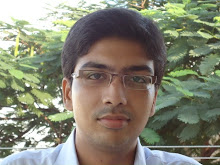News Commentary. Today, the Abbot and Costello of computing gave their farewell performance.
Microsoft's chairman, Bill Gates, and CEO, Steve Ballmer, kicked off this year's D Conference in Carlsbad, Calif. This year's event, the sixth, is simply called D6. Bill and Steve reminisced about the past, at a highly appropriate venue, as Microsoft's chairman prepares for his June 30 day-to-day retirement.
I refer to Gates and Ballmer as Abbot and Costello not with sarcasm, nor as insult. Over the years, the two men starred in many self-deprecating video spoofs that made fun of themselves and their company.
The evening opened with an editor's cut of the Bill Gates last day video show at the Consumer Electronics Show in January. (As I post, the two men are still on stage talking.)
I found a few other videos—and far from the best:
- Da Da Da (Quality isn't great)
- The Matrix (Comdex attendee incomplete recording)
- Xbox 360
- Gates vs. Ballmer
This wasn't the first, or even the last, time that Bill sat talking with technology columnist Walt Mossberg and Steve at the D Conference. But last year's Steve was somebody else: Apple CEO Steve Jobs, who isn't attending D6 (presumably because of preparations for his company's developer conference on June 9). Last year's Bill and Steve show brought together mythical opponents, founders of two distinct computing camps—Windows and Mac. This year's Bill and Steve show was more buddy adventure. Perhaps Buzz Lightyear and Woody would be better buddy metaphors.
Bill and Steve were card-playing buddies at Harvard, where Microsoft's co-founder was a notorious poker player. The friendship brought them both to Microsoft, where Steve took over as CEO in 2000. I've heard lots of criticisms about Steve's leadership over the years, mainly because of Microsoft's stock performance. Clearly, he still has his buddy's confidence—and with justification. Windows Vista may have crashed (and probably will burn), but Microsoft has gotten bigger and fatter during Steve's tenure.
Bill is following the tradition of all great monopolists: philanthropy. History will remember Microsoft's co-founder more for what he does as a philanthropist than as a businessman. In some respects, he will remain a monopolist. The Bill and Melinda Gates Foundation's enormous endowment makes the organization into a quasi-charity monopoly. Giving carries great influence, and the Foundation has deep pockets for which to influence the direction of aid or research.
But back to the buddies. They were kind of college roommates, Steve said. "Bill was a pretty shy guy, I would say," Steve explained. But the future Microsoft co-founder had a "certain kind of spark, particularly late in the day."
Later Steve said, "We were close friends, pretty much from the start."
Bill left Harvard to start Microsoft. Steve graduated, worked for Proctor and Gamble and then went on to business school at Stanford. While there, after Microsoft moved to Seattle, Steve got a passive kind of request from Bill, who called and said that it was too bad he didn't have a twin brother. "That was that sales call," Steve exclaimed. Next day, Steve called Bill, "What about me? I don't have a twin brother!"
They described the early days at Microsoft, where part of the emphasis was keeping enough cash on hand that the company would survive even if no customer paid. Microsoft continues the same philosophy.
Walt asked about the perception that Bill is the technology guy and Steve is the salesman.
"I ran the Windows 1.0 development team," Steve responded. "I am not an engineer." Steve made clear that he's no technologist.
D Conference co-organizer Kara Swisher asked Bill if he was a business man, to which he quipped, "Sales minus cost equals profit." Pause and he then joked, "Is there more?"
Walt asked about the transition eight years ago and whether or not Bill had veto power. "I am the junior partner," Bill responded. "I have been for the last eight years."
There was a year transition as roles changed. "It was a little confusing." Bill said about the transition. Steve interrupted, "It was difficult."
Steve still consults Bill on important decisions, but as a "friend" rather than as Microsoft chairman.
The two men have worked together for 28 years.


